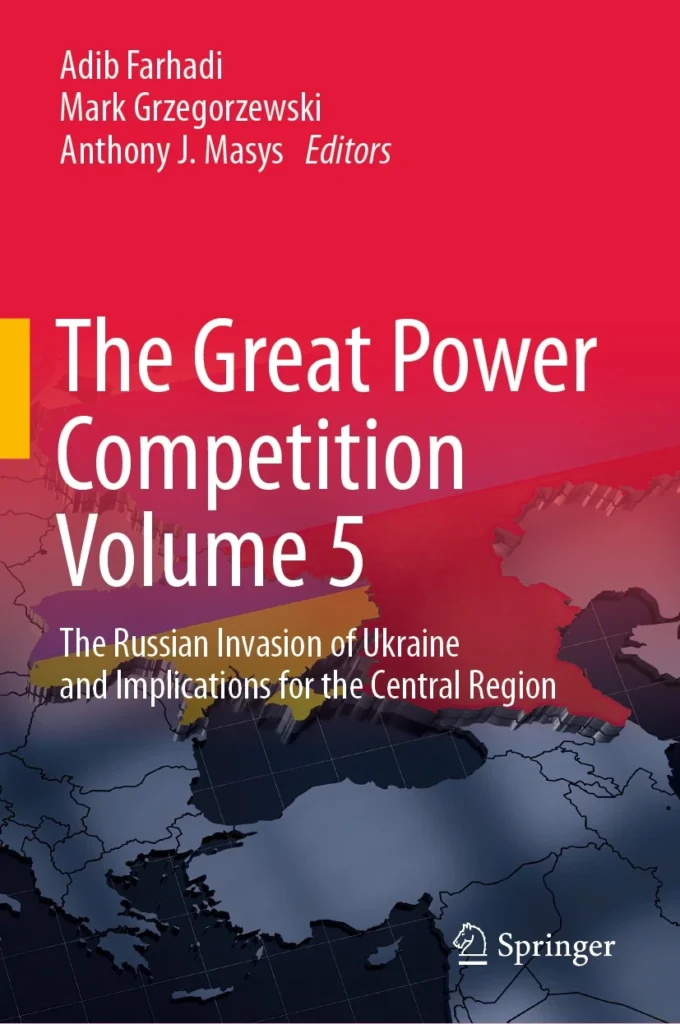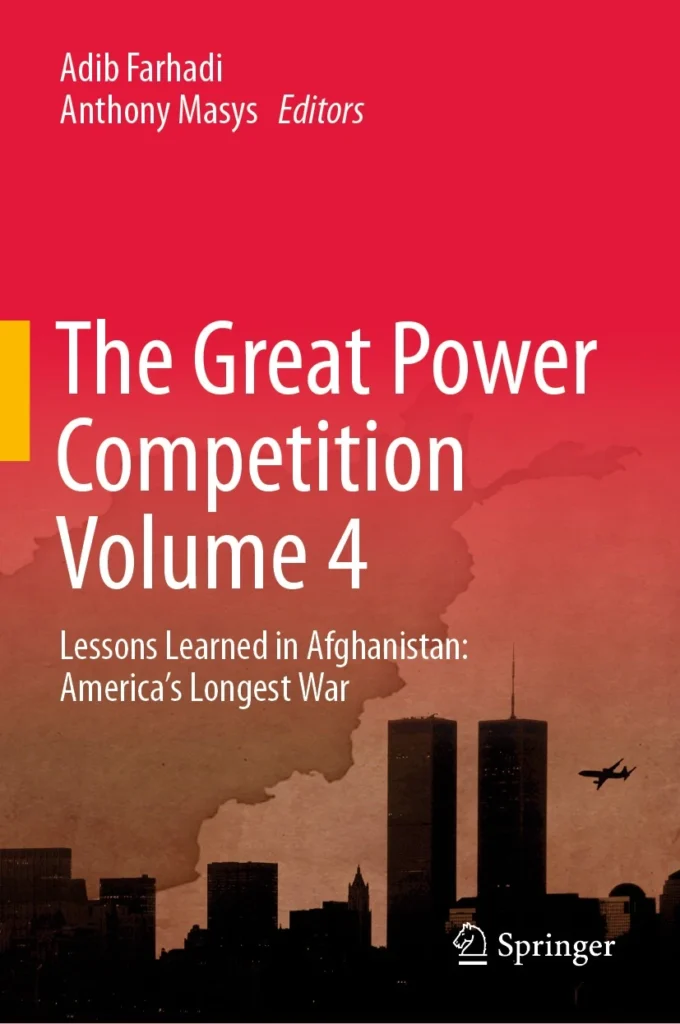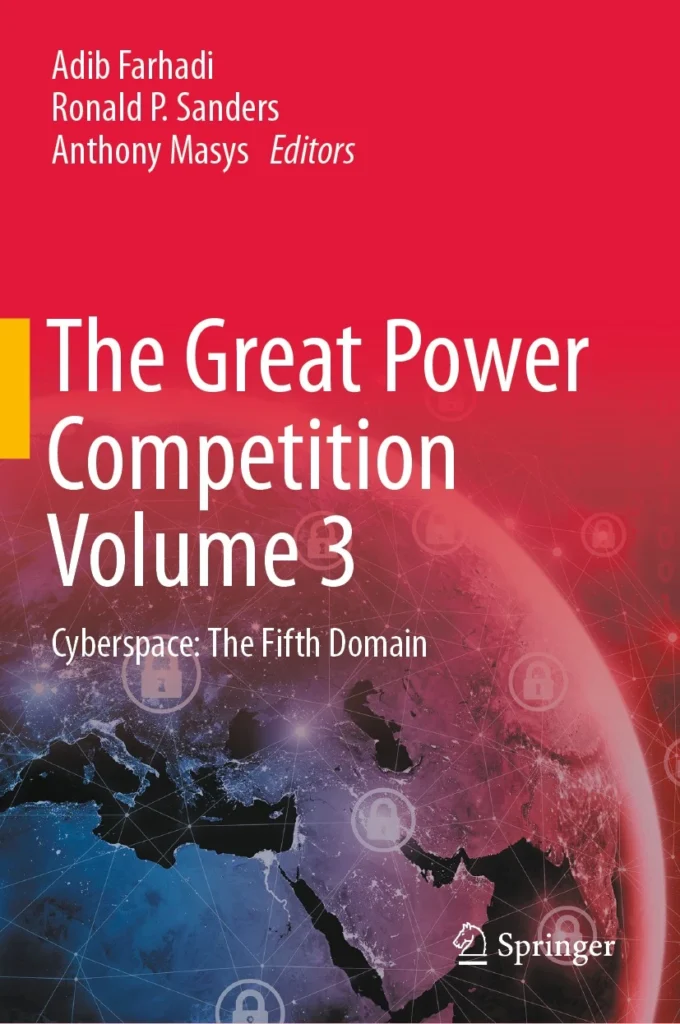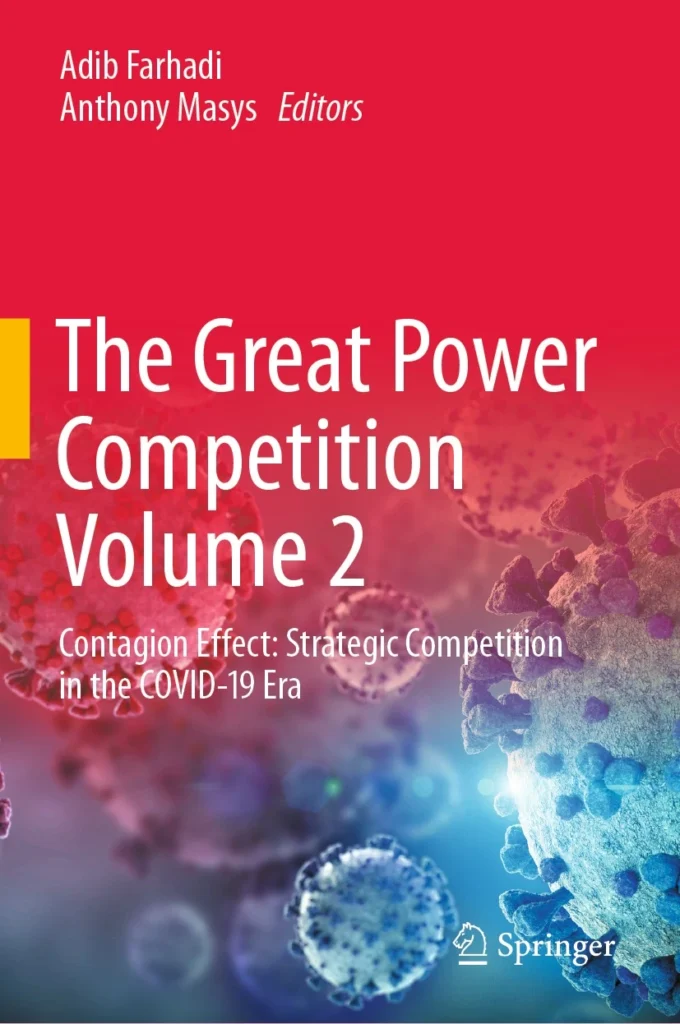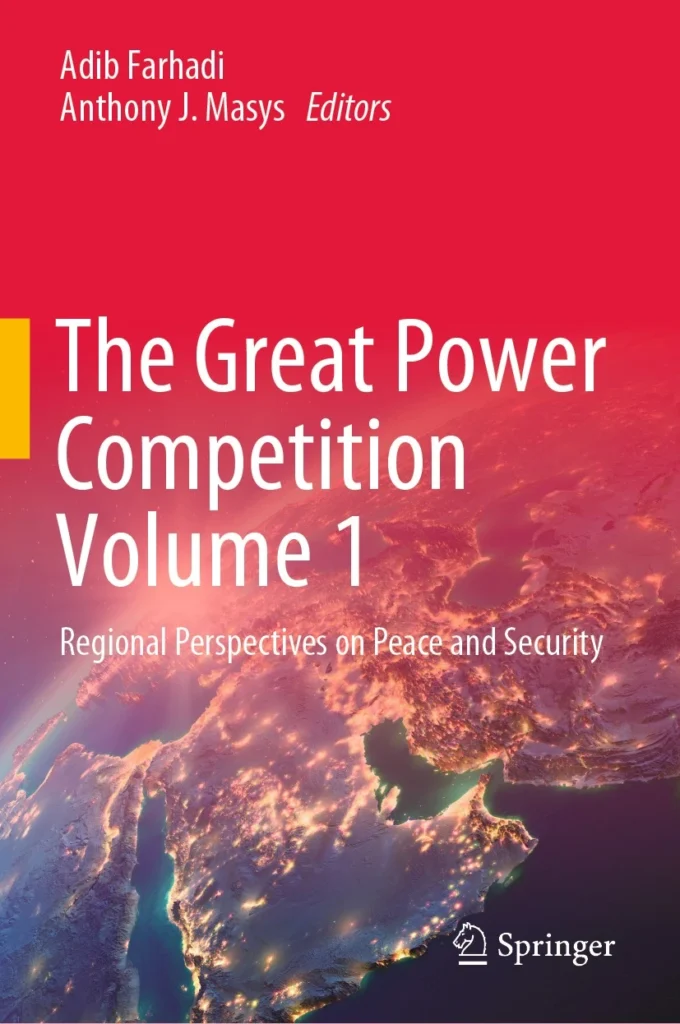BIO
Dr. Adib Farhadi is a tenured Associate Professor of Peace and Conflict at the University of South Florida, where he also serves as the Faculty Director of the Executive Education Program. His research adopts an interdisciplinary approach, examining the complex intersections of geoeconomics, geopolitics, and human dynamics, with a particular emphasis on the Great Power Competition in the “Silk Road” region of Central and South Asia. In addition to his academic roles, Dr. Farhadi serves as Editor-in-Chief of The Great Power Competition book series, Co-Principal Investigator for the Great Power Competition Initiative and the Global Influence Index, and Faculty Advisor to the Global and National Security Institute.
Dr. Farhadi was awarded the prestigious University of South Florida Distinguished Service Award for 2022-2023.
Formerly, Dr. Farhadi served in senior positions for Afghanistan and extensively advised and contributed research for the United States government, the United Nations, and other international organizations. He is a frequent presenter on religion, conflict and peacebuilding, Great Power Competition, Sustainable Development, Countering Violent Extremism (CVE), and the geoeconomics of the Middle East and CASA region.
BOOKS
Edited Volume
Edited Volume
Adib Farhadi – The Great Power Competition Volume 4 – 2023
Adib Farhadi – The Great Power Competition Volume 1 – 2020
This book is essential reading for scholars, policymakers, practitioners, and executives who are invested in maintaining and rebuilding American credibility essential to global security and peace…
Academic Publications
Farhadi A. (2024) Book Review: The Melting Point: High Command and War in the 21st Century by Gen. Kenneth F. McKenzie Jr., USMC (Ret.), Journal of Strategic Security, (4) pp. 113-121.
https://digitalcommons.usf.edu/jss/vol17/iss4/7/
Farhadi, A., Grzegorzewski, M., & Masys, A.J. eds. (2024) Great Power Competition Volume 6: The Rise of China. Springer Press.
https://link.springer.com/book/10.1007/978-3-031-70767-4
Farhadi A. (2024) Introduction. In: Farhadi, A., Grzegorzewski, M., & Masys, A.J. (eds.) Great Power Competition Volume 6: The Rise of China. Springer Press.
https://link.springer.com/chapter/10.1007/978-3-031-70767-4_1
Mahmoudian, A. (2024) The Cooperation of Russia and Iran-Led Shia Axis: Its Nature and Implications for the U.S. Strategy in the Middle East.
Adeaga, F.A. (2024) The Role of Muslim Women in Nigeria’s Socioeconomic Development Through the Implementation of the United Nations Sustainable Development Goals
Farhadi, A. (2023) Russia’s Invasion of Ukraine: Evolving Influence Dynamics in the Central Region. In: Farhadi, A., Grzegorzewski, M., & Masys, A.J. (eds.) Great Power Competition Volume 5: Russia’s Invasion of Ukraine. Springer Press.
https://link.springer.com/chapter/10.1007/978-3-031-40451-1_1
Farhadi, A., Grzegorzewski, M., & Masys, A.J. eds. (2023) Great Power Competition Volume 5: Russia’s Invasion of Ukraine. Springer Press.
https://link.springer.com/book/10.1007/978-3-031-40451-1
Farhadi, A. (2023) Lessons Learned from Afghanistan: The Heavy Price of Treating Long-Term Strategic Issues with Short-Term Tactical Approaches. In: Farhadi A. and Masys, A.J. (eds.) Great Power Competition Volume 4: Lessons from Afghanistan: America’s Longest War. Springer Press.
https://link.springer.com/chapter/10.1007/978-3-031-22934-3_1
Farhadi, A. and Masys, A. J. eds. (2023) Great Power Competition Volume 4: Lessons Learned in Afghanistan: America’s Longest War. Springer Press.
Farhadi, A., Sanders, R. & Masys, A.J. eds. (2022) Great Power Competition Volume 3: Cyberspace: The Fifth Domain. Springer Press.
https://link.springer.com/book/10.1007/978-3-031-04586-8
Farhadi, A. (2022) Countering Violent Extremism in Central Asia and South Asia: Islamophobia and Cyber-Radicalization in the Digital Era. In: Farhadi, A., Sanders, R. & Masys, A.J. (eds.) Great Power Competition Volume 3: Cyberspace: The Fifth Domain. Springer Press.
https://link.springer.com/chapter/10.1007/978-3-031-04586-8_5
Farhadi et al. (2022) The Cyber Pandemic that Could Redefine the Great Power Competition: Preparing the Defense Industrial Base. In: Farhadi, A., Sanders, R. & Masys, A.J. (eds.) Great Power Competition Volume 3: Cyberspace: The Fifth Domain. Springer Press.
https://link.springer.com/chapter/10.1007/978-3-031-04586-8_11
Farhadi, A. (2022) Post-9/11 Radicalization Theory and Its Impact on Violent Extremism. In: Masys,A.J. (ed.) Handbook of Security Science. Springer Press.
https://link.springer.com/referencework/10.1007/978-3-319-91875-4
Apaydin, F. (2022) Interpreting 9/11: Religious or Political Event?
Farhadi, A. (2021) From the Great Power Competition to Great Power Cooperation: Strategic Lessons from a Pandemic. In: Farhadi, A. and Masys, A.J. (eds.) Great Power Competition Volume 2: Contagion Effect: Radicalization, Unrest, and Competition in the COVID-19 Era. Springer Press.
https://link.springer.com/chapter/10.1007/978-3-030-90390-9_1
Farhadi, A. and Galloway, I. (2021) Building Trust and Advancing U.S. Geoeconomic Strength Through Public–Private Partnership Stakeholder Capitalism. In: Farhadi, A. and Masys, A.J. (eds.) Great Power Competition Volume 2: Contagion Effect: Radicalization, Unrest, and Competition in the COVID-19 Era. Springer Press.
https://link.springer.com/chapter/10.1007/978-3-030-90390-9_5
Farhadi, A. and Masys, A.J. eds. (2021) Great Power Competition Volume 2: Contagion Effect: Radicalization, Unrest, and Competition in the COVID-19 Era. Springer Press.
White, S. (2021) “Theology” in the Public University.
Farhadi, A. (2020) Conceptualizing the Great Power Competition and U.S. Geoeconomic Strategy for the Central and South Asia (CASA) Region. In: Farhadi A. and Masys, A.J. (eds.) Great Power Competition: Regional Perspectives in the Central Region. Springer Press.
https://link.springer.com/chapter/10.1007/978-3-030-64473-4_2
Farhadi, A. and Bekdash, A. (2020) Afghanistan’s Lithium as Strategic U.S. Focus in the Great Power Competition. In: Farhadi, A. and Masys, A.J. Great Power Competition: Regional Perspectives in the Central Region. Springer Press.
https://link.springer.com/chapter/10.1007/978-3-030-64473-4_3
Farhadi, Adib and Masys, A. J. eds. (2020) Great Power Competition: Regional Perspectives in the Central Region. Springer Press.
https://link.springer.com/book/10.1007/978-3-030-64473-4
Farhadi, Adib. (2020) Countering Violent Extremism by Winning Hearts and Minds. Switzerland: Springer Press.
Three Theorists on Religious Violence in an Islamic Context: Karen Armstrong, Mark Juergensmeyer, and William T. Cavanaugh
https://digitalcommons.usf.edu/etd/7756/
Farhadi, Adib (2014), “Stabilization for Sustainable Economic Growth in Fragile States: The Case for an Afghanistan Trade-Based Regional Economic Integration “Silk Road” Strategy”. (dissertation) National Centre for Social and Economic Modelling, Australia New Zealand School of Government, University of Canberra, June, Canberra Australia.
Rubin, Stoddard, Hamidzada and Farhadi (2004), “Building a New Afghanistan: The Value of Success, the Cost of Failure”. Center on International Cooperation, New York University, March, New York.
https://www.ariaye.org/archive/music/ketab/cooperation/english/Building.pdf
Seminars & Conferences
Playlist


1:37:57

2:31:56

9:32:58

10:02

3:48:25

6:58:56
Understanding Afghanistan: From Relief to Development.
The purpose of this event is fourfold: to raise public consciousness of the development gains which have been achieved over the past decade in Afghanistan partly as a consequence of Australia’s financial, military and technical support.
Dr. Adib Farhadi, Assistant Professor of the Department of Religious Studies and the Faculty Director of Executive Education at the University of South Florida, introduces GNSI Tampa Summit 3, featuring the 9th Great Power Competition Conference: Artificial Intelligence in the Era of Strategic Competition.
Center for the National Interest – July 9, 2025
Photo Gallery

Contact Information
Adib Farhadi, Ph.D.
Cooper Hall, Tampa, FL 33620, USA
CONNECT ON SOCIAL MEDIA



